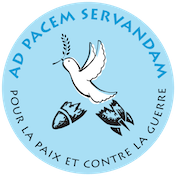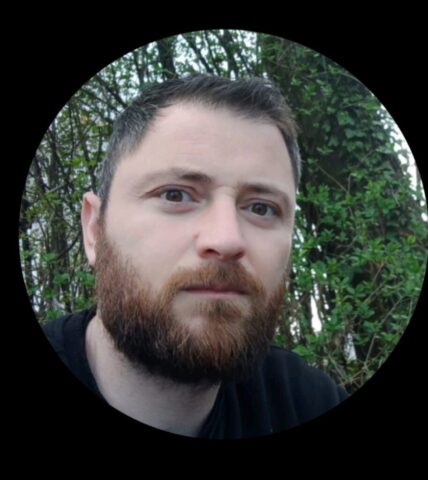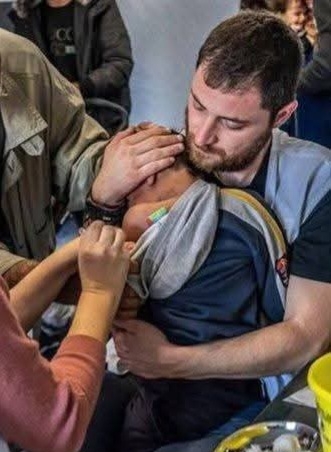For three years, the association ‘Ad Pacem servandam – For Peace and Against War’ has been supporting an interreligious and intercultural project in Sarajevo (Bosnia-Herzegovina) involving the three theological faculties (Roman Catholic, Serbian Orthodox, and Islamic).
In 2025, Ad Pacem will provide financial support to three students attending the European Summer School (from 1 to 15 July). Enclosed are two brochures presenting this summer school and its programme.
The students introduce themselves and explain their motivations.
Dragana VUČKOVIĆ
My name is Dragana VUČKOVIĆ and I am a student of the interreligious studies and peace building Programme, and a joint master’s programme offered by three theological faculties in Bosnia and Herzegovina. Prior to this master’s programme, I obtained a degree from the Department of History and Latin Language, followed by a master’s degree in Democracy and Human Rights in South-Eastern Europe. I belong to the Serbian Orthodox Church, I speak English fluently, and my mother tongue is Serbo-Croatian. I have obtained certificates in German, French, Spanish, and Russian, which I continue to improve by taking courses. I am doing this so that I can defend the well-being and peaceful coexistence of the people of Bosnia and Herzegovina on the international stage and in recognised institutions.
Since 2020, I have been working as a European Youth Ambassador appointed by the European Commission as part of the regional communication programme for the Western Balkans. I am actively involved in regional cooperation for young people in the Western Balkans and in connecting them with partners in the European Union. For me, the EU is a universal guarantor of peace and respect for human rights.
Born in Sarajevo in 1995, I was fortunately spared the horrors of war, but I live with the experiences of my parents, who had to change their place of residence because of the war (we lived in Doboj and Banjauka) and also lost close family members. Over time, thanks to my education and my childhood in a multi-ethnic environment, I have become aware that my parents’ fate is shared by many of my friends’ parents, regardless of their ethnic origin. I am an activist and am involved in peace initiatives within my country and region.
I believe that my participation in this summer school is another step towards contributing to peace-building and peace-keeping in Bosnia and Herzegovina. I hope to meet people who share the same ideals. As they come from different parts of the world, learning about their experiences will be precious to me.
I am sure that everything I learn in July during the courses and visits of the European Summer School in Sarajevo will also give me additional skills and information to contribute to the maintenance of lasting peace in Bosnia and Herzegovina and throughout the region. This is my dearest wish.
Today, I live in East Sarajevo.
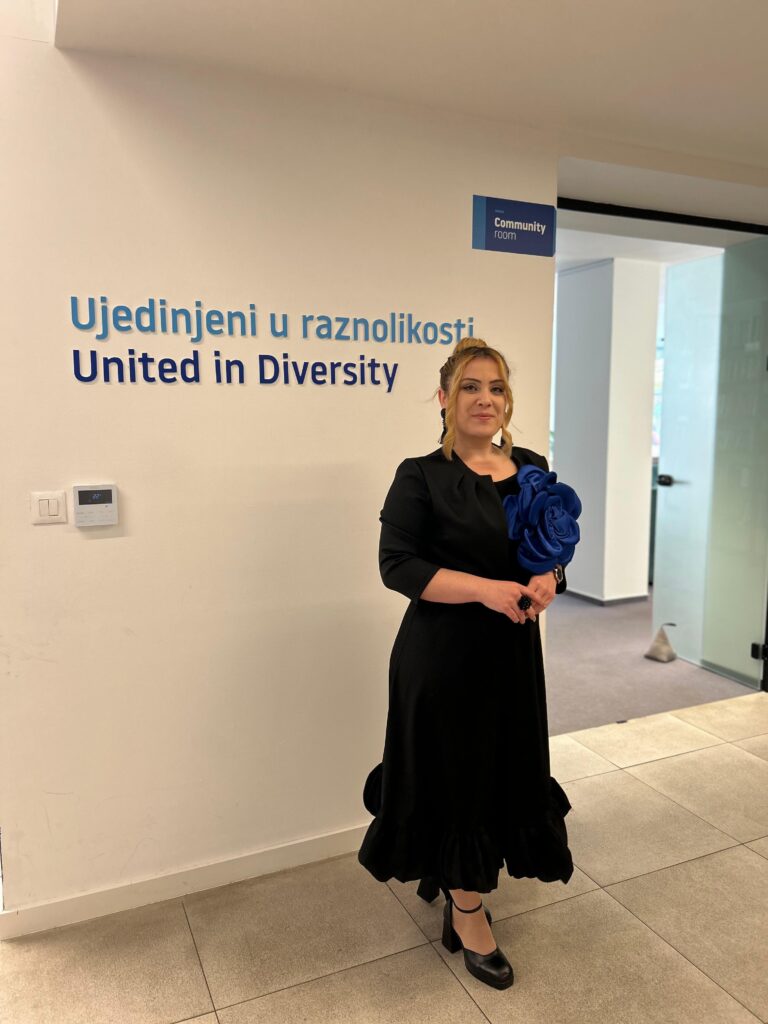
Haris HUSKIČ
My name is Haris Huskić and I was born in Tuzla (BiH) in 1995. I belong to the post-war generation in Bosnia and Herzegovina. Although I lived through the war years as a child, listening to my parents and observing their lives taught me that war does not destroy just one generation. The loss of a single innocent life is truly the loss of all humanity. The wounds of war in Bosnia and Herzegovina are still painfully open—many of those innocently killed in the genocide in Srebrenica have yet to find their final rest. The society I live in requires constant efforts for peace, education, and hard work. I believe that the generation I belong to has a unique opportunity to do much in the service of peace and mutual understanding.
In 2018, I graduated from the Faculty of Islamic Studies at the University of Sarajevo. I am married and currently live and work as an imam in Sarajevo. This means that I am in daily contact with people and their life stories. Precisely because of this closeness to people, I feel a strong responsibility to be someone who spreads hope, understanding, and peace—in the society I live in and grow with.
I am currently pursuing a Master’s degree in Interreligious Studies and Peacebuilding, which offers valuable knowledge and meaningful encounters along the path of dialogue and better understanding — something I consider extremely important.
I speak English and have passive knowledge of Arabic and Swedish.
I see the European Summer School as a valuable opportunity to meet people who share the same values of peace, love, and mutual respect. I believe that encounters and dialogue are the best ways to build bridges and overcome divisions.
Freedom is, in my view, one of the core values of the European Union—and it is also a fundamental prerequisite for any peace and well-being. Only a free person can be a true human being, and only such a person can offer the best of themselves.
My worldview is also shaped by Qur’anic verses such as:
“O mankind! We created you from a male and a female, and made you into nations and tribes so that you may know one another. Verily, the most honorable of you in the sight of God is the most God-conscious of you.” (Qur’an, 49:13)
“O you who believe! Enter completely into peace and do not follow the footsteps of Satan; surely he is a clear enemy to you.” (Qur’an, 2:208)
“Whoever kills a person [unjustly]—it is as if he had slain all mankind. And whoever saves a life—it is as if he had saved all mankind.” (Qur’an, 5:32)
These are complemented by the biblical message:
“Blessed are the peacemakers, for they shall be called the children of God.” (Matthew 5:9)
For these reasons, I see contributing to peace and encouraging greater understanding among people as both a spiritual and human obligation.
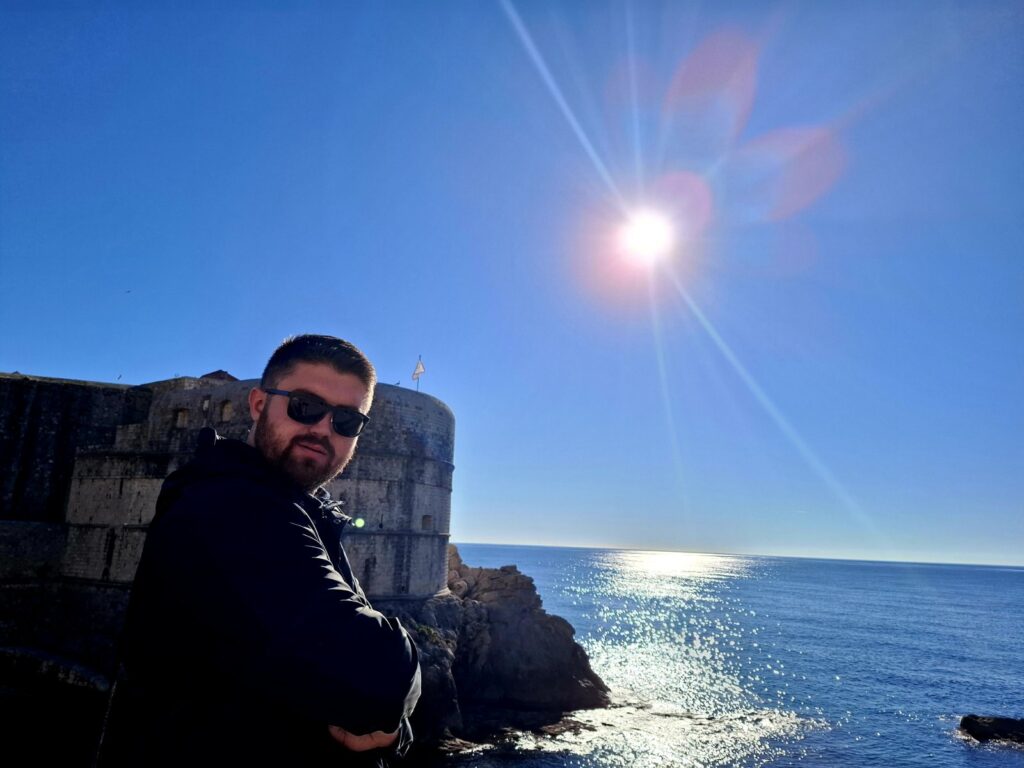
Samir ABOUKAF
I was born in Belgrade in 1985 into a mixed marriage – my father is from Syria and came to Yugoslavia in the 1960s as a veterinary student, and my mother is Serbian.
I started primary school in Serbia, but due to the conflicts in the former Yugoslavia, my family moved to my father’s country in 1993. I lived and studied there until 2011, when the war broke out in Syria. I then returned to Serbia, where I have been living and studying ever since.
I studied at the Agricultural Institute in Latakia, Syria, and later continued at the Faculty of Agriculture in Serbia. I am currently completing a master’s program in Interreligious Studies and Peacebuilding in Sarajevo.
Thanks to my parents, my sister and I were largely shielded from the full reality of war, but as children we still sensed that something was wrong. We felt the tension among people, the effects of economic inflation, the arrival of refugees and war invalids, and the departure of neighbors and friends. What hurt the most was being separated from relatives, friends, and the place where we were growing up.
After moving to Syria at the age of eight, I started learning the Arabic language. In Syria, I was further exposed to a different culture and way of life. Just before we left, I also remember feeling the effects of various forms of propaganda and incitement that were spreading in that period.
From an early age, I have been interested in the humanities – history, anthropology, geography, and interreligious and intercultural relations. This passion naturally led me to pursue studies in these areas, and I believe they are key to understanding people and building bridges among different communities. My background and life experience between the Middle East and the Balkans allow me to perceive things from different cultural, religious, and historical perspectives.
For the past ten years, I have been working with various humanitarian organizations on the Balkan refugee route, including in Greece, North Macedonia, Serbia, and Bosnia and Herzegovina. This has been particularly the case with Médecins sans Frontières (MSF), the Danish Refugee Council (DRC) and other humanitarian non-governmental organisations that primarily provided assistance to migrants at the local level. My work has been focused on human rights protection, integration, and promoting understanding among people of different cultures and nationalities.
I’m not married and I speak Serbian-Croatian-Bosnian (native), Arabic, English, and some Persian. I believe language is the key to understanding the other – it opens doors to culture and customs and widens our perspective. As my father used to say, “Every language you learn makes you a new person.”
I believe deeply in values such as mutual understanding, respect, non-imposition, and appreciation of diversity. I see the European Union as a space where these values are cultivated and promoted. Being part of that vision is important to me.
Attending the European Summer School would be an opportunity to enrich my academic and personal journey. It would allow me to meet others with similar interests and deepen my understanding of peacebuilding and interreligious dialogue. I hope to use that knowledge to contribute to my community and support peaceful coexistence, especially in multicultural regions such as the Balkans and the Middle East.

